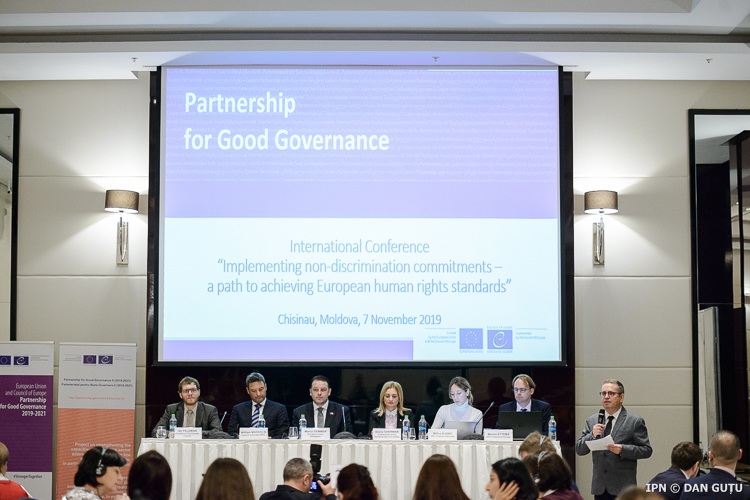
"Justice reform is the top priority for this government. We want an independent justice system, which will to do its job", said the chairwoman of the Parliamentary Committee for human rights and inter-ethnic relations, Diana Gherman, at the International Conference "Implementing non-discrimination commitments - the path to achieving European standards in the human rights field".
The MP recalled that the draft law on crimes motivated by prejudice, contempt and hatred was recently re-introduced on the parliamentary agenda. Diana Gherman expressed her belief that this bill will be enacted because, according to her, it is a necessary one. The chairwoman of the Committee for human rights and inter-ethnic relations said that it is important for all groups of society to oppose discrimination and offered as an example the elections. According to the MP, amending the Electoral Code will encourage the participation of women in elections. Diana Gherman also pointed out that violence against women is a scary reality of Moldova. Therefore, the legislators intend to ratify, by the end of the year, the Istanbul Convention.
William Massolin, head of the office of the Council of Europe in Chișinău, said that significant progress has been achieved in Moldova via the Law on ensuring equality. In 2013, the Council was created to prevent and eliminate discrimination and ensure equality. "Although it is a relatively new body, it has proven to be effective", said William Massolin. The official noted that equality and non-discrimination are "vital ingredients for a democratic society" and are the key values of the Council of Europe. For the Council of Europe, non-discrimination was a guiding principle from the beginning. Effective struggle with discrimination requires specific bodies to investigate and to inform the public about the issue of discrimination.
Marco Gemmer, head of the Operations Section of the Delegation of the European Union to the Republic of Moldova, stressed that human rights and equality activists are very important actors in the process of ensuring equity. They are responsible for implementing the legal provisions in this regard. According to him, it is a very good practice when different actors in society exchange experience in order to advance the implementation of deliverables.
Ian Feldman, chairman of the Council for Preventing and Eliminating Discrimination and Ensuring Equality (Equality Council), noted that it was not easy for the Council to act. Even so, it achieved a lot. "It's a success story", said Ian Feldman. The Council is ready to help everyone in order to create an equal society.
Within the same event, the Partnership for Good Governance II of the European Union presented two projects that aim to contribute to the fight against discrimination and to ensure equality with the help of justice. The first one started in May 2019 and will last for 31 months. Milica Djunici, project manager, said that the emphasis of the project is on supporting the training of lawyers. The overall objective is to align the justice system to European standards, especially in the field of combating discrimination.
The second project is a regional one and its objective is to improve access to justice and access to non-judicial redress mechanisms, said Menno Ettema, program manager.
In April 2014, the European Union and the Council of Europe agreed on the implementation of cooperation activities with Armenia, Azerbaijan, Georgia, Republic of Moldova, Ukraine and Belarus, countries that are part of the Eastern Partnership of the EU within the Partnership for Good Governance. The first phase of the program (PBG I) started in 2015 and ended in 2018. The second phase (PBG II) was launched in 2019 and will run until 2021.












